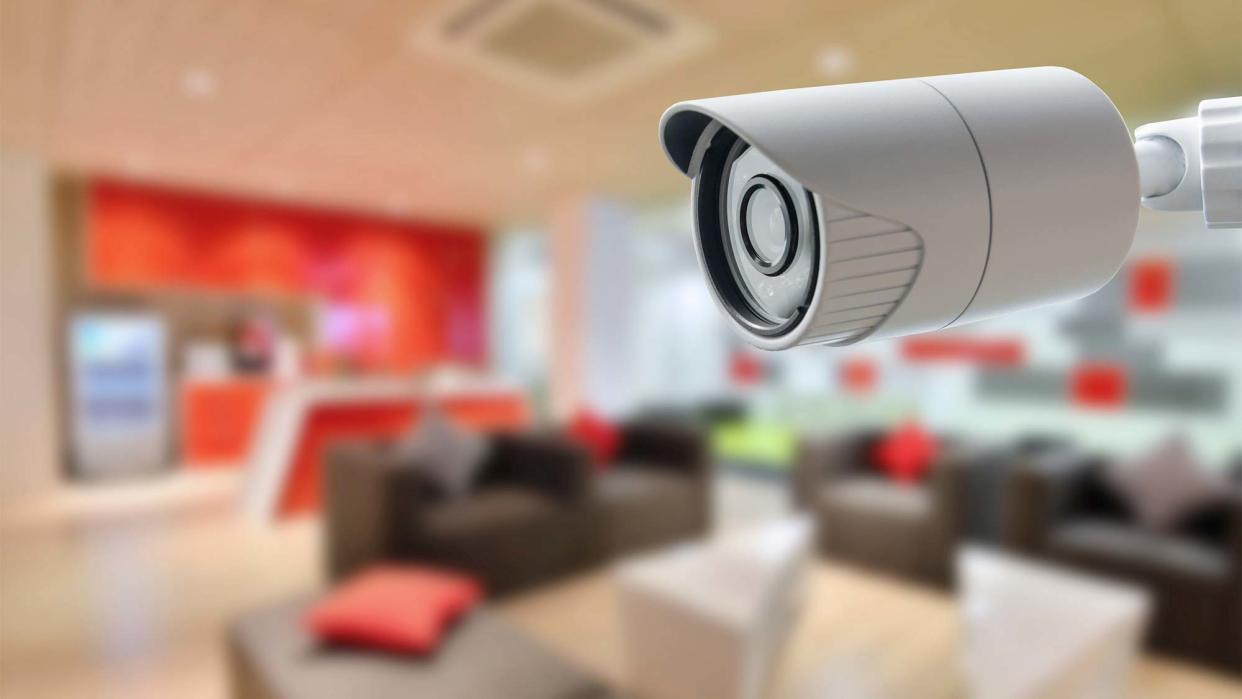How to Buy a Home Security System, From Cheap to DEFCON 1
PHOTOGraphicss/iStock
If you adore your home and the contents in it, then it makes sense to protect it with an alarm system. Only which one? Whether you rent or own, want to go all-out with motion sensors, or just do the bare minimum to keep intruders out, here’s how to find an alarm system that will suit your security needs and budget to a T.
What’s the minimum you need for an alarm system?
If you’re on a tight budget, your most basic alarm system could be simple devices that you attach to doors and windows that, if opened, will give off a piercing noise. This will alert you (if you’re home) and your neighbors, and perhaps even scare off your would-be intruder. Still, though, what if no one hears it? Your home invader could choose to take the chance and enter anyhow, gambling that no one will appear to save the day.
So if you want something a bit safer than an alarm alone, you should look for a system that at least offers some kind of monitoring.This is where you pay a monthly fee to have alarms that, if tripped, alert a 24/7 service that will get the police or some other security personnel sent to your home to see if something fishy is afoot.
As for where to place the alarms, there’s no need to go crazy in every room if you feel it’s too much. At the least, be sure to cover major entry points and have at least one motion detector near a highly trafficked area.
“You don’t have to install sensors on every window and door,” says Megan MacDonald, vice president of My Alarm Center. “Must-haves include coverage of your first-floor entry points with sensors and potentially motion detectors as a second layer of protection.”
What additional alarm features are worth the money?
Modern-day alarm systems offer a ton of features beyond monitoring and motion detectors, but not everything is worth having.
If you’re going to add to the basic package, the first thing you should consider is backup coverage. “Constant connectivity via cellular monitoring and battery backup are critical in the event of internet or power outages,” says MacDonald. After all, who wants to have no alarm system in the middle of a blackout?
Many alarm companies also offer apps so you can turn your alarm system off when you arrive home, or check to make sure you set it after you leave. It isn’t spy-level monitoring, but it is a nice feature to have.
You can also add cameras to most alarm packages now, and some cameras come with software to record motion activity or even send it live to your phone.
“They’re nice to have, but not absolutely necessary if you’re trying to save money,” MacDonald says.
Beyond that, some features don’t add as much value as they do to the cost of the system. Example: “Interactive services are an option to forgo if you’re on a budget. These give you access to see what is happening in your home with alerts and activity histories,” says MacDonald.
What if you’re a renter?
If you’re renting, you may be able to install a traditional system with your landlord’s permission, but you may not want to. If you’re footing the cost of installation, that system won’t come with you when you move. Instead, opt for something more mobile (yep, those exist now).
“If you’re renting, you might want to make sure the system is wireless,” says MacDonald. “That eliminates the need for drilling and possible damage and also ensures you can take the system with you when you move.”
But don’t forget to ask about reinstallation or moving charges before you sign up. Even if you can transport the system, many alarm companies will charge a fee to do so.
Whatever system you choose, don’t forget the alarm signs and stickers. Putting a sign in your front yard or stickers on points of entry can be enough to deter some would-be criminals. The lazy ones, anyway.
The post How to Buy a Home Security System, From Cheap to DEFCON 1 appeared first on Real Estate News and Advice - realtor.com.

 Yahoo News
Yahoo News 


